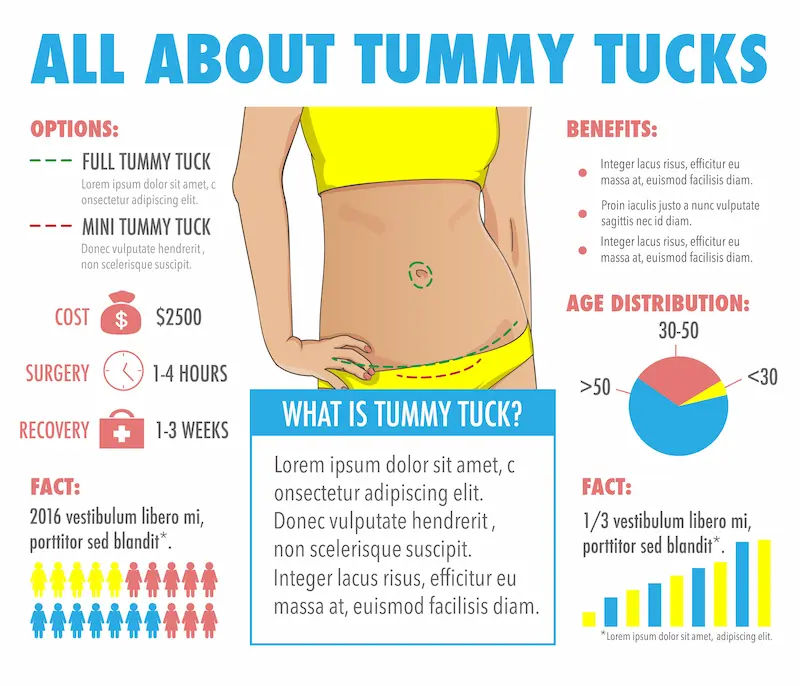Is My Child Overweight? A Guide for Parents
Learn how to recognise if your child may be overweight and discover practical, compassionate guidance for supporting their healthy growth and well-being.


Introduction
As a parent, your child's health and happiness are always at the forefront of your mind. It's natural to look at your growing child and wonder if their weight is within a healthy range, especially in a world where childhood obesity is a growing concern. The question "Is my child overweight?" can be fraught with anxiety, but it's important to approach it with knowledge and compassion, not fear or blame. This guide is designed to help you understand the signs, separate fact from fiction, and take positive, supportive steps for your child's well-being. We'll explore how to accurately assess if your child has a weight issue using tools like the BMI-for-age percentile, discuss the complex causes beyond simple overeating, and outline a healthy, sustainable approach focused on building lifelong habits. Remember, the goal is never shame or rapid weight loss, but rather fostering a healthy relationship with food and activity that will support your child for years to come. Let's navigate this sensitive topic together.
How to Tell if Your Child is Overweight: Beyond the Scale
Judging by sight alone can be misleading, as children's bodies change dramatically during growth spurts. The most reliable initial screening tool recommended by health organisations like the CDC and the American Academy of Pediatrics is the Body Mass Index (BMI) for age and sex.
Understanding BMI-for-Age Percentiles
Unlike adult BMI, which uses a fixed number, a child's BMI is plotted on a growth chart to determine their BMI percentile. This compares your child to others of the same age and sex.
- Underweight: Less than the 5th percentile
- Healthy weight: 5th percentile to less than the 85th percentile
- Overweight: 85th percentile to less than the 95th percentile
- Obese: 95th percentile or greater
You can calculate your child's BMI using online calculators from reputable sources like the CDC, which will provide the percentile.
What Do the BMI Percentile Numbers Mean?
It's crucial to understand that a high BMI-for-age is a screening tool, not a diagnosis. It indicates a potential risk, much like a warning light on your car's dashboard. A child above the 85th percentile may have excess body fat, but it must be interpreted by a healthcare professional who can consider other factors.
Other Important Factors to Consider
A percentile doesn't tell the whole story. A paediatrician will also consider:
- Growth Pattern: Has your child's weight percentile consistently been high, or is this a sudden jump?
- Family History: Are there genetic predispositions to a larger body frame?
- Stage of Puberty: Early or late developers can have different body compositions.
- Overall Health: Energy levels, breathing, and other vital signs are important contexts.
Consult a Paediatrician for the best advice
Common Causes of Childhood Weight Issues
Childhood weight gain is rarely due to a single cause. It's typically a combination of factors. Understanding these causes of childhood obesity can help you address the root of the issue without placing blame.
Lifestyle and Environmental Factors
This is the most common category and includes:
- Diet High in Calories: Regular consumption of sugary drinks, fast food, processed snacks, and large portion sizes.
- Lack of Physical Activity: Increased screen time (TV, phones, tablets) replaces active play. A sedentary lifestyle is a major contributor.
- Family Habits: If healthy eating and exercise aren't family priorities, it's difficult for a child to adopt them alone.
Genetic and Medical Factors
While less common, these play a significant role:
- Genetics: A child's metabolism and how their body stores fat can be influenced by family genes.
- Hormonal Conditions: Issues with thyroid or other hormones can sometimes lead to weight gain.
- Medications: Certain drugs, like some for depression or steroids, can cause weight gain as a side effect.
Health Risks Associated with Childhood Obesity
Addressing weight concerns is important because carrying excess weight can lead to serious health problems, even in childhood. These childhood obesity health risks include:
- Type 2 Diabetes: Once rare in children, this chronic condition is now increasing.
- High Blood Pressure and High Cholesterol: These increase the risk of future heart disease.
- Joint Pain and Breathing Issues: Like asthma and sleep apnoea.
- Psychological Effects: Low self-esteem, bullying, and a higher risk of depression and anxiety.
What to Do if You're Concerned: A Positive Approach
If you suspect your child is overweight, the focus should be on health and habit-building, not weight loss. The goal is to slow the rate of weight gain, allowing your child to "grow into" their weight as they get taller.
Focus on Healthy Eating Habits, Not Dieting
Never put a child on a restrictive diet unless supervised by a doctor. Instead:
- Make Small Swaps: Replace sugary drinks with water or milk. Offer fruit instead of cookies.
- Involve Your Child: Let them help with grocery shopping and cooking to build interest in healthy food.
- Eat Together: Family meals without screens encourage mindful eating.
Building a Balanced Plate: The Plate Method for Kids
A simple visual guide can help. Aim for half the plate to be fruits and vegetables, one-quarter lean protein, and one-quarter whole grains.
Encouraging Physical Activity as a Family
Activity should be fun, not a chore. Aim for at least 60 minutes of moderate activity daily.
- Make it a Family Affair: Go for family walks, bike rides, or play active games in the yard.
- Find What They Love: Encourage sports, dancing, or swimming, anything they enjoy.
- Limit Screen Time: Set clear daily limits for recreational screen use.
The Power of Positive Communication
How you talk about weight matters immensely. Focus on health and strength, not size or calories. Praise efforts like trying a new vegetable or playing outside, rather than appearance.
What to Avoid: Harmful Approaches to Steer Clear Of
Knowing what not to do is just as important as healthy habits.
- Putting Your Child on a Diet: This can lead to nutrient deficiencies, eating disorders, and a negative relationship with food.
- Shaming or Blaming: Comments about weight can cause lasting psychological harm.
- Using Food as a Reward or Punishment: This creates an unhealthy emotional connection to food.
When to Seek Professional Help
While lifestyle changes are the first step, professional guidance is crucial. If you are concerned about your child's growth pattern or overall health, it's best to consult a paediatrician. They can perform a proper assessment, rule out any underlying medical conditions, and provide personalised advice. You can consult a paediatrician online with Apollo24|7 to discuss your concerns and get initial guidance from the comfort of your home. For a comprehensive check-up, including necessary blood tests to screen for conditions like cholesterol or blood sugar issues, you can book a physical visit. Apollo24|7 also offers convenient home collection for tests like HbA1c or lipid profiles, making the process easier for your family.
Get Your Health Assessed
Conclusion: Fostering a Lifetime of Health
Navigating concerns about your child's weight is a journey that requires patience, love, and a focus on long-term health. Remember, the number on the scale is just one piece of the puzzle. By using tools like the BMI percentile as a guide, not a verdict, and focusing on building healthy family habits around nutrition and activity, you can create a supportive environment for your child to thrive. The most powerful thing you can do is model a positive relationship with food and your own body. Your goal is to raise a healthy, confident individual, and that foundation is built one healthy meal, one active playtime, and one supportive conversation at a time. If you're ever unsure, your paediatrician is your greatest ally in ensuring your child's healthy development.
Consult a Paediatrician for the best advice
Consult a Paediatrician for the best advice

Dr. Barnali Das. Senior Child Specialist
Paediatrician
24 Years • MBBS, DCH, PGT (SGRH, New Delhi),MRCPCH (United Kingdom)
Guwahati
Apollo Hospitals G S Road, Guwahati
(50+ Patients)

Dr Yaja Jebaying
Paediatric Gastroenterologist
9 Years • MBBS, MD PEDIATRICS, FELLOWSHIP PEDIATRIC GASTROENTEROLOGY AND HEPATOLOGY AND LIVER TRANSPLANTATION
Delhi
Apollo Hospitals Indraprastha, Delhi
(25+ Patients)

Dr Anita Arora
Paediatrician
40 Years • MBBS,DCH,MD(PAEDIATRICIAN)
Noida
Apollo Hospitals Sector 26, Noida

Dr. Shravanti Bhimavarapu
Paediatrician
10 Years • MBBS, MD (Paediatrics)
Hyderabad
Apollo Hospitals Jubilee Hills, Hyderabad

Dr. Anita Bakshi
Paediatrician
30 Years • MBBS, MD
Delhi
Apollo Hospitals Indraprastha, Delhi
(25+ Patients)
Consult a Paediatrician for the best advice

Dr. Barnali Das. Senior Child Specialist
Paediatrician
24 Years • MBBS, DCH, PGT (SGRH, New Delhi),MRCPCH (United Kingdom)
Guwahati
Apollo Hospitals G S Road, Guwahati
(50+ Patients)

Dr Yaja Jebaying
Paediatric Gastroenterologist
9 Years • MBBS, MD PEDIATRICS, FELLOWSHIP PEDIATRIC GASTROENTEROLOGY AND HEPATOLOGY AND LIVER TRANSPLANTATION
Delhi
Apollo Hospitals Indraprastha, Delhi
(25+ Patients)

Dr Anita Arora
Paediatrician
40 Years • MBBS,DCH,MD(PAEDIATRICIAN)
Noida
Apollo Hospitals Sector 26, Noida

Dr. Shravanti Bhimavarapu
Paediatrician
10 Years • MBBS, MD (Paediatrics)
Hyderabad
Apollo Hospitals Jubilee Hills, Hyderabad

Dr. Anita Bakshi
Paediatrician
30 Years • MBBS, MD
Delhi
Apollo Hospitals Indraprastha, Delhi
(25+ Patients)
More articles from Obesity
Frequently Asked Questions
What is a healthy weight for my 10-year-old?
There isn't one 'healthy weight' for a 10-year-old, as it depends on height, sex, and build. The best way to know is to calculate their BMI-for-age percentile. A result between the 5th and 85th percentiles is generally considered a healthy weight for children by age.
How can I help my overweight child lose weight safely?
The safest approach is not focused on weight loss but on healthy habits. Work on improving the whole family's diet with more fruits, vegetables, and whole grains, reducing sugary drinks, and increasing physical activity. This allows the child to grow into their weight over time.
Should I talk to my child about their weight?
It's best to focus the conversation on health and not weight itself. Use positive language like, 'Let's all try to be healthier and stronger by eating more colorful foods and playing outside together.' If you are concerned about how to approach this, discussing strategies with a paediatrician or child psychologist can be very helpful.
Can my child's overweight be due to a medical condition?
While most often related to lifestyle, hormonal imbalances or other medical issues can sometimes be a factor. This is why a check-up with a paediatrician is essential to rule out any underlying causes.
Are BMI charts accurate for all children?
BMI is a useful screening tool but may be less accurate for very muscular children. A healthcare professional will consider BMI along with other factors like growth history and a physical exam to get a complete picture.



_1.webp)
.webp)
.webp)
